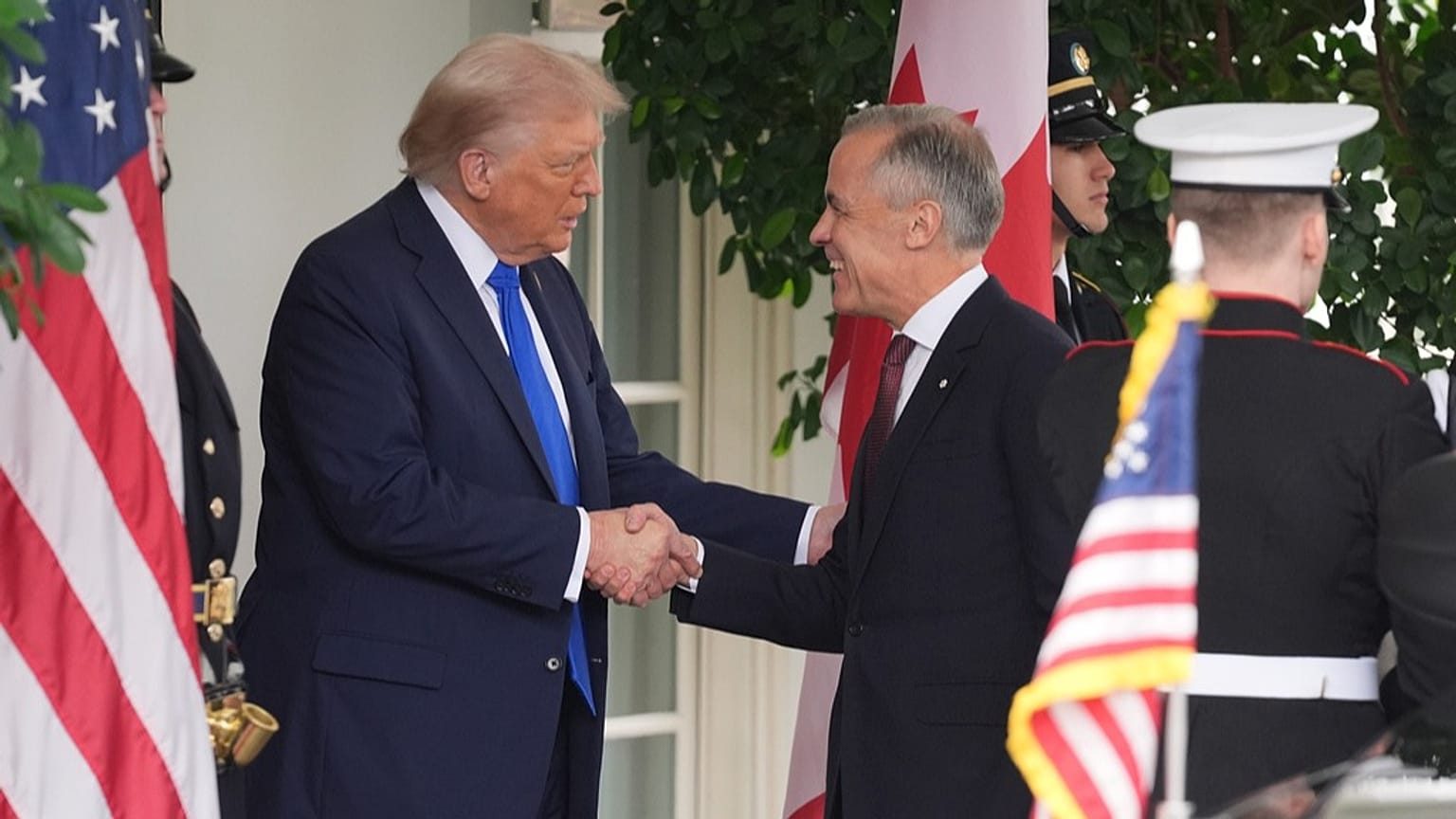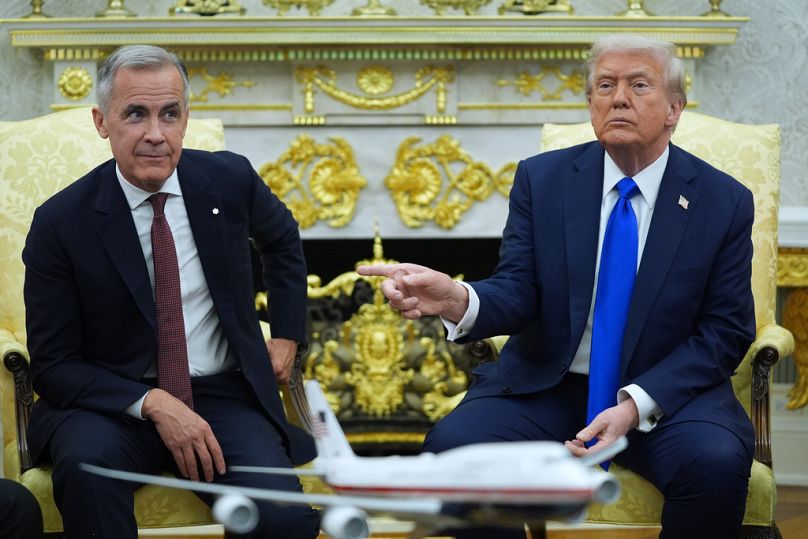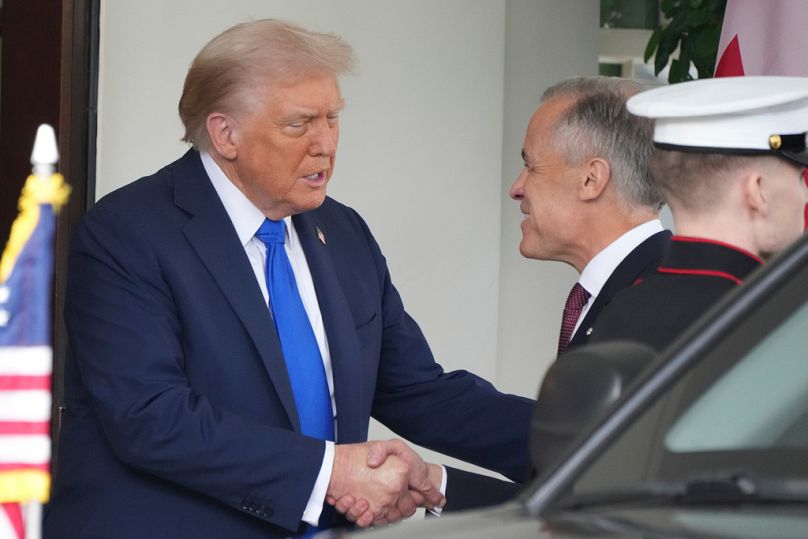Trump downplayed the decline in Canadians visiting the US as a major issue, stressing that most Canadians “still love” the US and noting that relations between the two countries will fully restore after a trade deal is reached.
US President Donald Trump says his country has a “natural conflict” over the same business with Canada, making striking a trade deal between the two neighbours a “complicated situation”.
The comments came as he met with Canada’s Prime Minister Mark Carney at the Oval Office on Tuesday to discuss trade after Trump slapped one of the US’ closest trading partners with 35% tariffs on most of its goods.
While other countries, including the UK, the EU, South Korea and Japan were able to strike deals to decrease the tariffs imposed on them, Canada is not part of that list and still faces one of the higher rates imposed by the Trump administration.
Tariffs started after Trump accused Canada, under former Prime Minister Justin Trudeau, of enabling the flow of illegal immigrants and drugs, namely fentanyl, into the US through a lack of diligent policing.
Mexico was also victim to the same accusation, and it too was slapped by the Trump cabinet with a heavy tariff for its part in that.
Carney’s second visit to the Oval Office since succeeding Trudeau in March came ahead of next year’s review of the United States-Mexico-Canada Agreement and as one of the world’s most durable and amicable alliances has been fractured by Trump’s trade war and annexation threats.
Trump said he was open to extending the free trade agreement with Mexico and Canada through a renegotiation or seeking “different deals.”
The agreement was enacted during Trump’s first term and it allows the majority of Canadian and Mexican goods to be shipped to the US without tariffs.
Trump has made it clear however since returning to office that he wants to reshape that relationship, and expressed mixed feelings over the process as long as he feels like he’s able to improve Washington’s position.
“We could renegotiate it, and that would be good, or we can just do different deals,” he said. “We’re allowed to do different deals if we want. We might make deals that are better for the individual countries.”
Carney entered the visit hoping to find some relief on sector-specific tariffs. Trump has some sector-specific tariffs on Canada – known as Section 232 tariffs – that are having an impact. There are 50% tariffs on steel and aluminium imports, for example.
There is fear in Canada over what will happen to the US-Mexico-Canada Agreement, which is critical to Canada’s economy. More than three-quarters of Canada’s exports go to the US.
Trump, who showed a fondness for Carney, something he didn't have towards his predecessor, noted there was a “natural conflict” between the two countries, a point to which the Canadian premier politely disagreed.
“We have natural conflict,” he said. “We also have mutual love.” Carney said he wouldn't use the word “conflict.”
“There are areas where we compete, and it’s in those areas where we have to come to an agreement that works. But there are more areas where we are stronger together, and that’s what we’re focused on,” stressed Carney.
This is a low point in US-Canada relations, a situation largely exacerbated by Trump’s hostility and repeated remarks expressing interest in “taking ownership” of his northern neighbour and making them the 51st US state.
The US president even made a joking reference to a “merger” between the two countries at the top of his remarks on Tuesday.
The comments have infuriated many Canadians, who have avoided travel to the US, as data from Canada’s national statistical office indicates a 23% decline in Canadians dropping south of the border in the first seven months of this year, compared to last year.
Trump dismissed the issue, saying that Canadians still “love” the US, and asserting that relations will be “better than they ever were” once the two countries reach a trade deal.

















